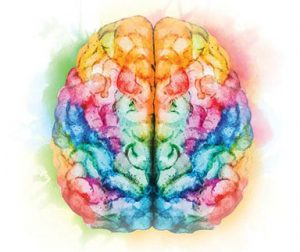by Adam O’Loughlin
Head of Policy & Service Delivery | National Police Autism Association
What is ‘neurodiversity’? Many of you will have heard the term either at work or in your personal lives. In fact I’m sure there’s many of you who consider yourselves to be ‘neurodiverse’ or ‘neurodivergent’. I certainly do. But knowing the terms and hearing the words doesn’t really do a lot to help people understand what they mean, and why there there’s a bit of controversy around them.

Neurodiversity is an umbrella term that was coined in the late 90’s by Australian author Judy Singer. Rather than an actual condition, neurodiversity is a respectful way of thinking about those who may have one of a number of neurological or cognitive differences. Usually (and this list is by no means exhaustive) the conditions that fall under the neurodiversity umbrella are:
The trouble is that these conditions mean different things to different people. So, for example: autism is both a neurodiverse condition, a disability and a social/communication impairment; ADHD is a Specific Learning Difference (SpLD), a neurodiverse condition and a cognitive impairment; and dyspraxia is a SpLD, a neurodiverse condition, a disability and a motor coordination disorder – all at the same time.
It’s no wonder people get confused.
Neurodiversity challenges the default assumption that those conditions or disorders need to be eradicated, prevented, treated or cured. In highly social and unpredictable environments, some cognitive differences may come across as disabilities, while in more neurodiverse-friendly environments they can be catered for, allowing people’s talents to blossom. Neurodiversity reminds us that disability and even disorder may be about the person-environment fit.
Where it gets controversial is that some people think that advocates of neurodiversity can trample all over the rights, entitlements and feelings of genuinely disabled people who feel as if their experiences are being minimised away. I have a lot of sympathy for this view and I know many parents in particular who if they were offered a ‘cure’ for their child, would take it.
But I don’t think that the neurodiversity/disability viewpoints are mutually exclusive. Neurodiversity is a fact of nature: our brains are all different, so there is no point in being a neurodiversity denier. It’s my passionate view that our friends and colleagues want to be valued for their differences. What’s attractive about the neurodiversity model is that it doesn’t focus solely on what someone struggles with; instead it gives equal attention to what the person can do without ignoring or minimising their needs.
These biological variations are a vital part of people’s identity, and we should give them equal respect alongside any other form of diversity, such as gender. But to encompass the breadth of those conditions, neurodiversity advocates need to make space for those who do consider themselves disabled – and as pertinently, those with relatives who may be more profoundly affected. ∎
This blog was originally published on the Avon & Somerset Police intranet
